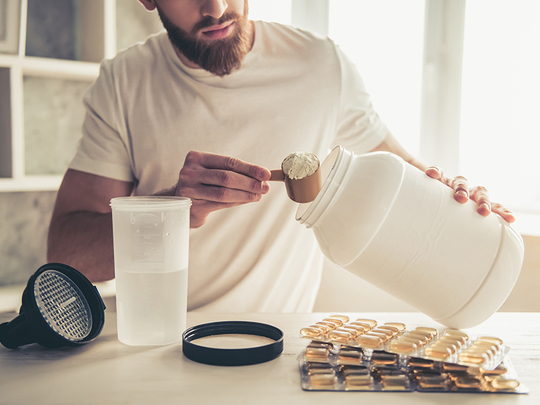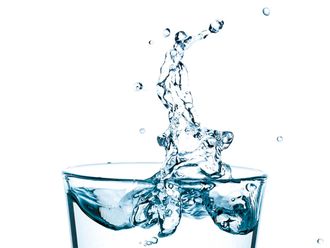
I will be the first to admit that often I have a scoop of protein in my shakes. For me, it’s just a convenient post-workout meal. However, when I interviewed an experienced nephrologist recently and she mentioned that she has seen young patients at the hospital with impaired kidney function due to excessive protein consumption, it made me think about the mountain of protein products that are available at supermarket shelves.
Moderating quantities
While I am all in favour of moderation and balance, the question is how much really is too much.
Dr Hind Hassan Al Nour, nephrologist at Dubai Hospital, says, “Normally protein deficiency is very uncommon, so I don’t see the need to go out of our way to consume protein if you have a varied and healthy diet. I have treated some young patients with impaired kidney function because they were consuming excessive protein to build a muscular body.”
Dr Al Nour says that while most of her patients were treated with medication, some needed dialysis for a temporary period of a few weeks, while very few needed it for life. “This obsession with how you look gets in the way of your health.”
Dr Wafaa Ayesh, Director of Clinical Nutrition at DHA, says, “There is no doubt that the body needs protein as it is the building block of your body. However, often we see young people overdoing it to gain muscles.
“The Dietary Reference Intake (DRI) is 0.8 grams of protein per kilogram of body weight, or 0.36 grams per pound. When people eat too much protein, they take in more nitrogen than they need. This places a strain on the kidneys, which must expel the extra nitrogen through urine.”
Stephanie Karl, Clinical Nutritionist at Emirates Integra Medical and Surgery Centre, “There is no doubt that excessive protein puts unnecessary pressure on the kidneys. In fact, a recent study undertaken on people’s protein intake showed that increasing or reducing the amount of protein did not make a huge difference on their muscle mass, but excessive protein did put a lot of strain on the kidneys. The kidneys needed to excrete the excessive nitrogen caused by the consumption of excessive protein.” Karl says that it can also cause dehydration, osteoporosis and kidney stones.
In terms of sources of protein, Dr Ayesh says, “The best way to get protein is to eat healthy meals with a wide variety of protein sources as opposed to consuming the same source daily. Amino acids are the building blocks that make up protein. There are 20 different amino acids in all, and different proteins provide different combinations of amino acids in varying ratios. Since each high-protein food contains a different amino acid profile, it is important to eat a range of protein sources. This means that eating the same type of protein source at every meal is not a good option. “Opt for a wide variety of lean (unprocessed) meats, cottage cheese, eggs, fish, legumes, nuts and seeds.”
Building muscle
Research published in a recent edition of the British Journal of Sports Medicine found that eating more protein can significantly augment the effects of lifting weights. The researchers also concluded that any form of protein, including beef, chicken, yoghurt or even peas, and not just high-protein shakes and supplements, were found to be effective in helping to build larger, stronger muscles.
“For those who want to use protein powders, it is very important to select a high-quality powder and to consume sensible amounts of protein,” Karl says. “The body cannot process more than 20 grams of protein per hour. Any more than that is putting the body under tremendous pressure, so people need to be aware of this. Additionally, eating protein-rich foods provides nutrients in a more absorbable form, while protein powders isolate amino acids for quicker absorption at an optimum time after exercise to maximise the synthesis of protein into lean tissue.”
The curd part of milk is also a valuable protein and is marketed as casein protein. It is more slowly absorbed after ingestion and maybe a better answer for sustaining protein availability over the day or overnight.
As mentioned, different foods supply different amino acids and animal proteins have a much wider mix of these than plants. However, nutritionists can advise on what a portion size looks like to provide 20g of protein, similar to a scoop of protein powder, and also to ensure that a wide variety of amino acids are supplied in a balanced daily diet.
As well as overburdening kidney function, too much protein will break down to glucose and contribute to energy, albeit not as efficiently as eating carbohydrates.
Safe levels of protein aligned with exercise and the type are well researched, but advice from some quarters tends towards recommending levels at the extreme with little knowledge of individual metabolism.












